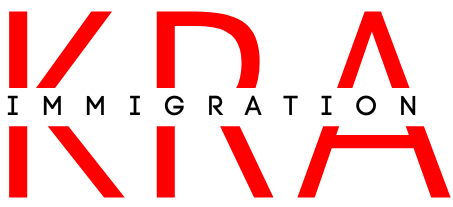Why are student applications being rejected a lot lately in Canada?
Canada has long been a top destination for international students, known for its high-quality education, multicultural environment, and welcoming immigration policies. However, in recent years, there has been a significant uptick in student visa rejections. This trend has sparked concerns among prospective students, educational institutions, and policymakers alike. Several factors contribute to the increasing rejection rates, and understanding these can help students improve their chances of success when applying for a Canadian study permit.
1. Increased Volume of Applications
One of the primary reasons for the rising rejection rate is the sheer volume of applications. Canada has become increasingly popular among international students, leading to a surge in the number of student visa applications. According to the Immigration, Refugees, and Citizenship Canada (IRCC), applications have more than doubled over the past decade. With more applicants vying for a limited number of study permits, the approval process has become more competitive. The higher demand has forced Canadian immigration officials to scrutinize applications more rigorously, leading to a higher rate of rejections.
2. Inadequate Financial Proof
One of the key requirements for a Canadian study permit is demonstrating sufficient financial resources. Students must show that they can cover tuition fees, living expenses, and return travel costs for the duration of their studies. Many applicants fail to provide adequate proof of funds, which is one of the most common reasons for rejection. IRCC requires applicants to submit bank statements, sponsorship letters, or scholarship proof that clearly show they have the financial means to support themselves in Canada. Inconsistent or insufficient financial documentation raises red flags for immigration officers, leading to application denial.
3. Misalignment Between Study Program and Background
Another factor contributing to student visa rejections is a perceived misalignment between the applicant’s academic or professional background and the chosen study program. Immigration officers assess whether the chosen program of study makes sense in light of the applicant’s past education and work experience. For example, if a student with a background in business administration applies for a program in culinary arts without providing a clear explanation, the visa officer may question the applicant’s genuine intent to study. Without a logical connection between past experience and future study plans, the application is more likely to be rejected.
4. Concerns About Return to Home Country
One of the critical criteria for obtaining a Canadian study permit is proving that you will return to your home country after completing your studies. Many students fail to convince immigration officers of their genuine intent to return home, especially if the officer perceives that the applicant may overstay their visa or attempt to transition to permanent residency without following the correct procedures. Strong ties to the home country, such as family obligations, property ownership, or a clear career path after graduation, are essential in demonstrating your intention to return. Lack of evidence regarding these ties often results in rejection.
5. Poorly Prepared or Incomplete Applications
The application process for a Canadian study permit is complex, and many applicants submit incomplete or poorly prepared applications. Missing documents, incomplete forms, or unclear information can significantly hurt an applicant’s chances of success. For instance, some students fail to include key documents like a letter of acceptance from a Designated Learning Institution (DLI) or a valid passport. Others might submit low-quality copies of documents that are difficult for immigration officers to read. Such errors can delay the processing of the application or lead to outright rejection.
6. Low IELTS or Language Proficiency Scores
Canada requires international students to demonstrate proficiency in either English or French, the country’s two official languages. Most students need to submit standardized language test scores, such as the International English Language Testing System (IELTS) or Test d’évaluation de français (TEF). Low language scores are another common reason for student visa rejections. Language proficiency is essential not only for academic success but also for integration into Canadian society. Students with scores that do not meet the required threshold for their chosen program are more likely to have their applications denied.
7. Concerns About the Legitimacy of the Education Institution
Not all educational institutions in Canada are designated to accept international students. The IRCC only grants study permits to students enrolled in Designated Learning Institutions (DLIs). Recently, there has been an increase in the number of fraudulent or unaccredited institutions attempting to recruit international students. Applicants who apply to non-DLI schools are automatically rejected. Additionally, visa officers may question the legitimacy of smaller or lesser-known institutions, especially if the program appears to lack academic rigor. Students must ensure they are applying to legitimate and recognized institutions to avoid rejection.
8. Increased Focus on Fraud Prevention
Fraudulent activities in student visa applications, such as falsified documents or misrepresented information, have increased in recent years. To combat this, Canadian immigration authorities have stepped up their efforts to identify and prevent fraud. This means they are more vigilant in reviewing applications and more likely to reject any application that raises suspicions, even if the errors are unintentional. For instance, inconsistencies between documents or discrepancies in the timeline of an applicant’s educational history can lead to rejection. It is essential for applicants to be truthful and consistent in their applications to avoid being flagged for fraud.
Conclusion
The rise in student visa rejections in Canada is influenced by multiple factors, including the increasing volume of applications, inadequate financial proof, misaligned study programs, and concerns about fraud. To avoid rejection, students must ensure their applications are complete, accurate, and well-documented. Providing sufficient financial proof, demonstrating a clear alignment between your academic background and chosen program, and showing strong ties to your home country are all critical steps in improving your chances of success. By understanding and addressing these common issues, prospective students can navigate the Canadian visa application process more effectively and increase their chances of fulfilling their dream of studying in Canada.



